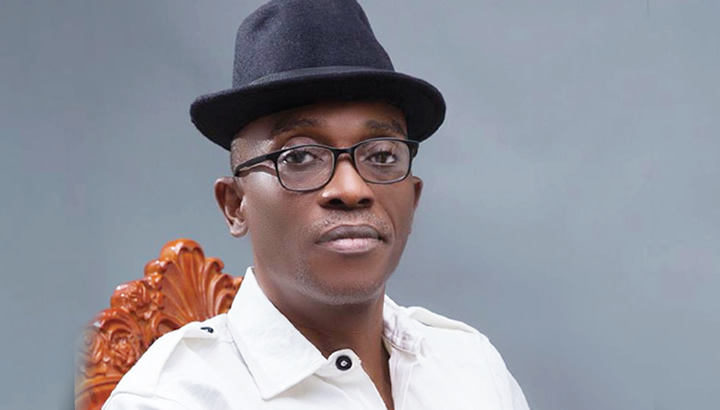The political landscape of Abia State, Nigeria, is embroiled in a power struggle within the Labour Party, with accusations of financial mismanagement and desperate attempts to cling to power. At the center of this conflict is the embattled National Chairman of the party, Julius Abure, and Abia State Governor, Alex Otti. Dr. Ebere Uzoukwa, a prominent figure in the Abia State Labour Party and a close aide to Governor Otti, has publicly denounced Abure’s recent actions, characterizing them as a desperate ploy to deflect attention from demands for accountability regarding the party’s finances. This follows Abure’s announcement of the indefinite suspension of Governor Otti and other party leaders, allegedly for anti-party activities. Uzoukwa argues that this suspension is a retaliatory measure against Otti and others who have challenged Abure’s leadership and sought to reclaim the party from what he terms “political merchants.”
Uzoukwa’s statement paints a picture of a party in turmoil, with Abure’s leadership marked by controversy and chaos. He points to a Supreme Court ruling that allegedly confirms Abure’s removal as National Chairman, yet Abure continues to act in that capacity, issuing statements and making decisions that Uzoukwa deems an affront to democracy and a mockery of the judiciary. The core of the accusation centers on Abure’s handling of party finances, with Uzoukwa alleging that Abure’s actions are driven by self-preservation and the protection of his own potentially corrupt interests, rather than the welfare of the party. The call for Abure to account for his financial management has intensified, with the Senator Nenadi Usman-led National Caretaker Committee formally requesting Abure to address these concerns.
Uzoukwa strongly supports Governor Otti’s leadership and dismisses the suspension as a “bad joke” and a futile attempt by Abure to maintain his grip on power for future political maneuvering. He calls for decisive action, urging the Inspector General of Police to arrest Abure for impersonation and the Independent National Electoral Commission (INEC) to enforce the Supreme Court judgment, thereby upholding the integrity of the democratic process. Uzoukwa portrays Abure’s continued presence as a threat to democracy, emphasizing the urgency of intervention.
Further amplifying his criticism, Uzoukwa condemns Abure’s legacy as one marred by shame, incompetence, and corruption. He depicts Abure as a desperate figure clinging to power and relevance, urging the party to move beyond his disruptive influence and focus on rebuilding a stronger and more accountable Labour Party. Uzoukwa contrasts this negative portrayal of Abure with his praise for the Senator Nenadi Usman-led National Caretaker Committee, commending their efforts to revitalize the party and restore its grassroots strength. He also acknowledges the contributions of Peter Obi, the 2023 Labour Party presidential candidate, and Governor Otti for their role in challenging Abure’s leadership and attempting to reclaim the party.
The central demand articulated by Uzoukwa is the removal of Abure and his associates from the party’s national secretariat. He calls upon security agencies to enforce the Supreme Court judgment, which he asserts clearly indicates the expiration of Abure’s tenure as National Chairman. This demand underscores the belief that Abure’s continued presence is detrimental to the Labour Party and its future prospects.
The ongoing power struggle within the Labour Party, as articulated by Dr. Ebere Uzoukwa, highlights deeper issues of accountability, financial transparency, and the adherence to democratic principles. The accusations against Abure, if substantiated, raise serious concerns about the integrity of party leadership and the potential misuse of party resources. The call for his removal and the demand for accountability represent an attempt to restore trust and rebuild the party’s image. The unfolding events underscore the challenges faced by emerging political parties in Nigeria and the importance of establishing robust internal mechanisms for governance and accountability.














